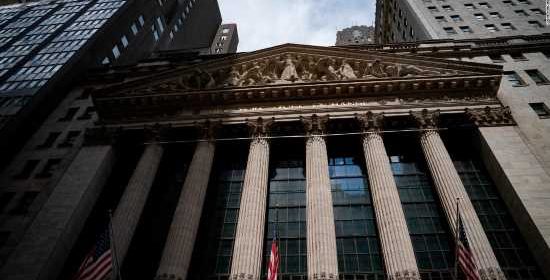Stocks dive after Federal Reserve chairman warns of "pain" to tame inflation

New York (CNN Business)Tuesday’s market rally was brief. Stocks opened higher but quickly gave up their gains as the morning wore on. A more than 5% drop in oil prices, while welcome news to consumers, led to a big sell-off in energy stocks.
The Dow tumbled about 375 points, or 1.2%, in midday trading. Shares of Chevron (CVX), a Dow component, fell 3%. The S&P 500 was down 1.4% and oil stocks were the biggest losers. The S&P Energy Select Sector SPDR Fund (XLE) slid 3.7%.
Wall Street’s bad mood wasn’t just about oil, as the entire market was reeling Tuesday. The Nasdaq, home to many top tech stocks, fell 1.7% as well.
Stocks are now on track for their third straight day of losses. Investors are still dealing with the aftermath of Federal Reserve chair Jerome Powell’s speech at Jackson Hole on Friday, which led to a more than 1,000 point plunge in the Dow.
The market was expecting — some might say hoping — that Powell would signal that the Fed was becoming less concerned about inflation, which would have been a possible sign that the central bank won’t raise rates too aggressively at its September 21 meeting
.But Powell instead talked about how continued rate hikes were still necessary to fight inflation, even if that meant “some pain” for consumers and businesses. As such, traders are now anticipating another three-quarters of a percentage point rate hike next month.
It is worth noting that the market volatility is taking place during a notoriously quiet time on Wall Street. Trading volume is light as many investors are enjoying their last bits of summer vacation.
What’s more, there isn’t a lot of economic or earnings data to move stocks right now.
The numbers that did come out Tuesday were not too bad. Retailer Best Buy (BBY) reported earnings and sales that were better than expected. US companies still have more job openings and consumer confidence actually rose in August.
“Falling gas prices, higher stock prices, and finally being able to take a vacation improved moods for consumers in August,” Jamie Cox, managing partner with Harris Financial Group, said in a report.
But good news can sometimes be viewed as bad news on Wall Street. Any signs that the economy may be holding up better than thought and not heading toward a significant downturn will likely be interpreted as inflationary — which means more big rate hikes could be coming.
“Normally, seeing companies wanting to hire more workers is a good thing. However, after Fed Chair Powell’s short Jackson Hole speech myopically focused on reducing demand and jobs, more jobs is more reason to for the Fed to raise rates,” Bryce Doty, senior portfolio manager with Sit Fixed Income Advisors, said in an email.
With all that in mind, investors will be paying extremely close attention to Friday’s jobs report. Economists expect that 300,000 jobs were added in August. Although that would be a slowdown from the 528,000 added in July, it’s still a healthy gain for the nation’s payrolls — and would not be considered a harbinger of recession.
Source: Read Full Article


